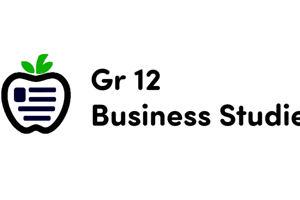Podcast
Questions and Answers
Define ethics in the context of principles, values, and beliefs.
Define ethics in the context of principles, values, and beliefs.
Ethics refers to the guiding principles, values, and beliefs influencing human behavior and decision-making.
What is the relationship between ethics and morality?
What is the relationship between ethics and morality?
Ethics and morality are often used interchangeably.
How does ethical behavior in the investment industry impact investor trust?
How does ethical behavior in the investment industry impact investor trust?
Ethical behavior increases investors' trust in the investment industry.
What is 'financial contagion' and why is it a consequence of unethical behavior?
What is 'financial contagion' and why is it a consequence of unethical behavior?
What are the three tenets that accountants must adhere to?
What are the three tenets that accountants must adhere to?
Name the five fundamental principles of SAICA’s Code of Conduct.
Name the five fundamental principles of SAICA’s Code of Conduct.
According to the CFA Code of Ethics, whose interests come first?
According to the CFA Code of Ethics, whose interests come first?
List three of the CFA Standards of Professional Conduct.
List three of the CFA Standards of Professional Conduct.
What is the focus of the ethical framework, Utilitarianism?
What is the focus of the ethical framework, Utilitarianism?
Explain deontology and its core strength.
Explain deontology and its core strength.
Explain Virtue Ethics.
Explain Virtue Ethics.
Why is reviewing all available options vital in ethical decision-making?
Why is reviewing all available options vital in ethical decision-making?
What two attributes are considered when making good ethical choices?
What two attributes are considered when making good ethical choices?
What is the first step in the Ethical Decision Making Framework?
What is the first step in the Ethical Decision Making Framework?
What does 'Consider' entail in the Ethical Decision Making Framework?
What does 'Consider' entail in the Ethical Decision Making Framework?
In which step of the Ethical Decision Making Framework would you elevate the issue to a higher authority?
In which step of the Ethical Decision Making Framework would you elevate the issue to a higher authority?
Why is reflection an important step in the Ethical Decision Making Framework?
Why is reflection an important step in the Ethical Decision Making Framework?
Explain how increased market participation due to ethical conduct benefits the financial system.
Explain how increased market participation due to ethical conduct benefits the financial system.
Describe a scenario where adherence to the principle of "objectivity" within SAICA's code of conduct could prevent a significant ethical breach in financial reporting. Be specific.
Describe a scenario where adherence to the principle of "objectivity" within SAICA's code of conduct could prevent a significant ethical breach in financial reporting. Be specific.
Elaborate on the potential long-term consequences if a financial analyst consistently prioritizes 'Duties to Employers' over 'Duties to Clients,' as outlined in the CFA Standards of Professional Conduct. How could this behaviour erode trust within the broader capital markets?
Elaborate on the potential long-term consequences if a financial analyst consistently prioritizes 'Duties to Employers' over 'Duties to Clients,' as outlined in the CFA Standards of Professional Conduct. How could this behaviour erode trust within the broader capital markets?
Flashcards
Ethics
Ethics
Guiding principles, values, and beliefs for human behavior and decision-making.
Business Ethics
Business Ethics
Moral principles and standards guiding individuals' and organizations' behavior in interactions.
Benefits of Ethical Conduct
Benefits of Ethical Conduct
Following ethical standards to boost stability and build investor confidence.
Consequences of Unethical Conduct
Consequences of Unethical Conduct
Signup and view all the flashcards
SAICA's Code: Integrity
SAICA's Code: Integrity
Signup and view all the flashcards
SAICA's Code: Objectivity
SAICA's Code: Objectivity
Signup and view all the flashcards
SAICA Code: Competence & Due Care
SAICA Code: Competence & Due Care
Signup and view all the flashcards
SAICA's Code: Confidentiality
SAICA's Code: Confidentiality
Signup and view all the flashcards
SAICA's Code: Prof. Behavior
SAICA's Code: Prof. Behavior
Signup and view all the flashcards
Utilitarianism
Utilitarianism
Signup and view all the flashcards
Deontology
Deontology
Signup and view all the flashcards
Virtue Ethics
Virtue Ethics
Signup and view all the flashcards
Ethical Decision-Making
Ethical Decision-Making
Signup and view all the flashcards
Ethical Decision Making Process
Ethical Decision Making Process
Signup and view all the flashcards
Ethical Principles
Ethical Principles
Signup and view all the flashcards
Duties to Others
Duties to Others
Signup and view all the flashcards
Important Facts
Important Facts
Signup and view all the flashcards
Conflicts of Interest
Conflicts of Interest
Signup and view all the flashcards
Guidance
Guidance
Signup and view all the flashcards
Learn
Learn
Signup and view all the flashcards
Study Notes
Ethics and Decision Making
- Ethics and Morality can be used as synonyms
- Ethics involves principles, values, and beliefs guiding human behavior and choices
- Business ethics are moral principles for individuals' and organizations' conduct
- Ethics offers a framework to evaluate morality in actions and decisions
- Ethics significantly shapes existing and new laws and regulations
Ethical Considerations
- Ethical behavior is needed for the:
- Success of investment industry
- Investor confidence
- Integrity of investment profession and financial markets
- Fairness and efficiency of markets
- Public and client trust
Benefits of Ethical Conduct
- Ethical standards increase the stability of the financial system
- Ethical standards complement legal obligations and standards of professional conduct
- Ethical behavior from investment employees increases investors' trust
- Increased trust leads to greater market participation and efficiency
- Market participation provides increased liquidity and quicker price adjustments
- Increased market participation promotes public awareness and understanding
Consequences of Unethical Conduct
-
For the Industry and Economy:
- Can cause changes in market participant behavior
- Can cause financial contagion which may be dangerous to interconnected companies and the economy
-
For Clients:
- Clients may be exposed to excessive risks and unsuitable assets
- Clients may see inflated investment service costs
- Clients can lose trust in financial markets due to things like insider trading
-
For Employers:
- Can see a loss of reputation and shareholder value
- Can cause legal liabilities and greater regulatory scrutiny
-
For Individuals:
- May cause significant legal, professional, personal, and economic ramifications
Accounting Ethics
- Accountants must uphold integrity, competence, and objectivity.
- SAICA has adopted the International Code of Ethics for Professional Accountants.
- International Ethics Standards Board for Accountants (IESBA) releases International Independence Standards.
- The code outlines ethics principles for accountants.
- Ethical duties apply to oneself, colleagues, and their organizations.
SAICA's Code of Conduct
- Integrity: Honesty, fairness, and truthfulness in professional relationships
- Objectivity: Avoidance of bias, conflicts of interest, and undue influence
- Professional Competence: Diligence, knowledge, and adherence to standards
- Confidentiality: Non-disclosure of client/employer information unless legally required
- Professional Behavior: Compliance with laws and avoidance of discrediting actions
CFA Code of Ethics
- Chartered Financial Analyst (CFA) Institute maintains high public trust.
- Members must act with integrity, competence, and professionalism.
- Client and profession interests come before personal gain.
- One should maintain and enhance professional competence.
CFA Standards
- Professionalism: Includes law compliance, objectivity, and avoiding misrepresentation
- Integrity of Capital Markets: Avoid insider trading and market manipulation
- Duties to Clients: Acting in the client's best interest while maintaining confidentiality
- Duties to Employers: Avoiding conflicts of interest and maintaining confidentiality
- Analysis and Recommendations: Using thorough research and disclosing risks
- Conflicts of Interest: Disclose any potential biases
- Responsibilities: Maintain the reputation of the CFA designation
Ethical Frameworks
-
Utilitarianism:
- Maximizes overall happiness or utility of society
- Uses consequences to judge ethical actions
- Guides decision-making by maximizing social welfare
-
Deontology:
- Involves evaluating if an action adheres to ethical principles
- Is consistent with ethical codes even without the greatest benefit
- Provides clear guidelines based on moral principles
-
Virtue Ethics:
- Focuses on developing personal character traits to guide decisions
- Sees ethics as necessary and vital
- Applied by individuals/organizations acting responsibly and sustainably
Ethical Decision Making
- Ethical decisions build trust, fairness, responsibility, and care.
- Ethical decision making requires reviewing options and eliminating unethical views.
- Sound choices should be both effective and ethical.
- Effective choices fulfill their intended purpose.
- Thinking about short-term vs. long-term objectives is imperative to making sound choices
- Ethical decision-making requires issue sensitivity and a structured method
Ethical Decision-Making Framework
- In order to promote sound decisions, one can utilize a framework
- One example framework has 4 major steps:
- Identify
- Consider
- Act
- Reflect
Ethical Decision-Making Framework Stages
-
Identify:
- Determine ethical principles at issue
- Determine one's duties to others
- Define key facts and needed information
- Identify conflicts of interest
-
Consider:
- Analyze situational and internal influences
- Brainstorm alternative actions
- Seek additional guidance
-
Act:
- Make and implement a decision specific to the situation
- Escalate the issue as needed
-
Reflect:
- Evaluate the lessons learned
- Know your strengths and weaknesses
Studying That Suits You
Use AI to generate personalized quizzes and flashcards to suit your learning preferences.




